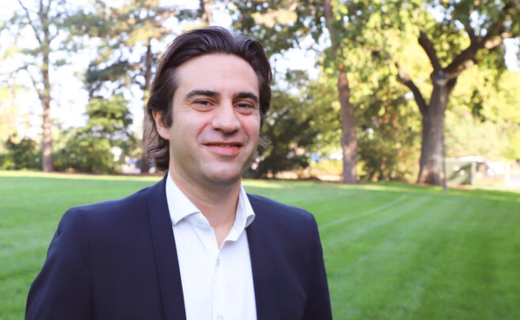- Candidates
- Login
- Set Up Account
- Create a Job Alert
- Search Tools
- Resources
- Employers

Patricio Grassini, Sunkist Distinguished Professor of Agronomy, receives the 2024 International Agronomy Award from the American Society of Agronomy (ASA). This honor recognizes outstanding work in research, teaching, extension, or administration carried out outside the United States by a current agronomist. ASA presents the award each year to celebrate major contributions to global agriculture.
Grassini accepts the award during the ASA annual meeting in San Antonio, Texas, held from November 10 to 13, 2024. The ASA awards highlight excellence in national and international research, education, and service that strengthens the field of agronomy.
Grassini’s research and extension programs focus on yield intensification. His goal is to help farmers improve profit while also protecting the environment. His applied research covers many cropping systems around the world. This includes rainfed crops in Latin America and Sub-Saharan Africa, high yield irrigated crops in the U.S. Corn Belt, and perennial crops such as oil palm in Indonesia. His international work shows a strong commitment to helping farmers in many regions increase production in a sustainable way.
“Patricio has demonstrated his ability to build collaborations with many international institutions,” said Jim Specht, agronomy and horticulture professor emeritus. “He is leading the well-renown international Global Yield Gap Atlas.”
The Global Yield Gap Atlas is a major international database that provides high-quality agronomic data from local to global scales. It covers up to 13 important food crops across 70 countries and six continents. This tool helps governments, development agencies, private foundations, and the agriculture industry make informed decisions. It supports efforts to improve food security, increase crop yields, and guide investment in agricultural research and development.
Grassini holds a Bachelor of Science degree in agricultural engineering from the University of Buenos Aires in Argentina and a doctorate in agronomy from the University of Nebraska–Lincoln. His academic record includes 10 book chapters and more than 110 scientific papers, including publications in leading journals such as Nature Communications, Nature Sustainability, Nature Food, and the Proceedings of the National Academy of Sciences of the United States of America (PNAS).
He is listed among the top 2% most cited scientists in the world by the Stanford/Elsevier List in 2024 and among the top 1% in his field by Web of Science for the past five years.
Photo by: agronomy.unl.edu